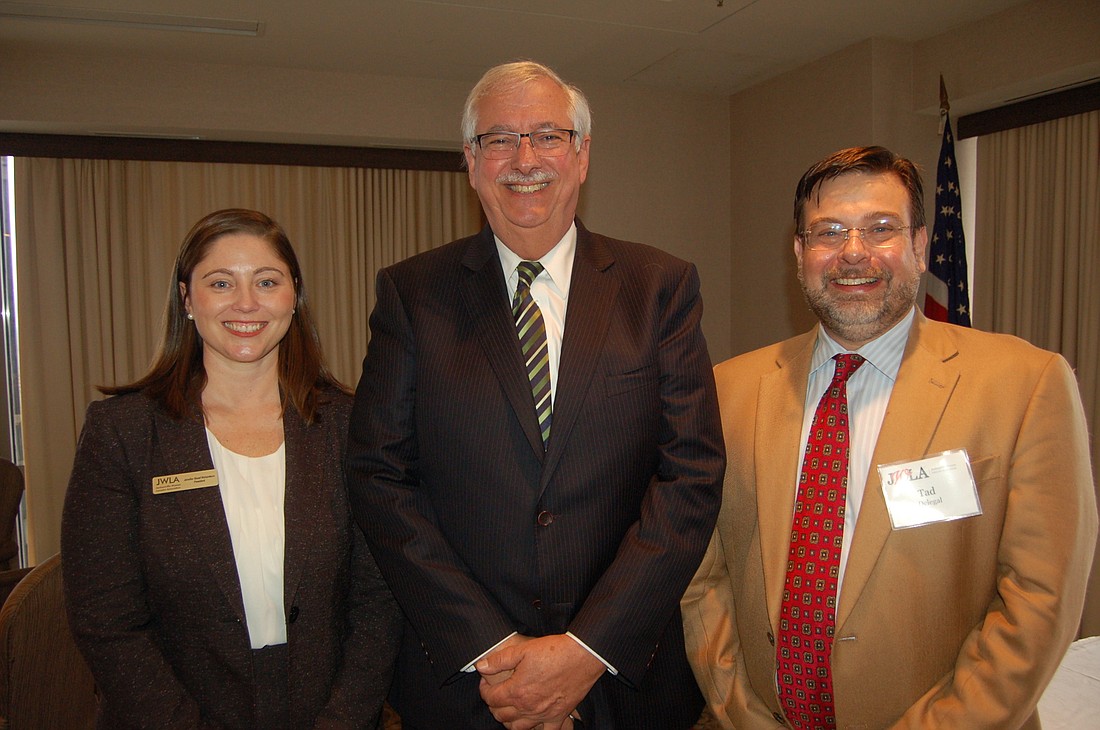
Campaigning for public office has become over the past several years an exercise lacking civility in which ethics sometimes aren’t a priority.
For one group of candidates, however, name-calling, negative advertising and other such tactics aren’t allowed.
In fact, that style of campaigning is against the law when seeking election to the bench.
Duval County Judge Roberto Arias offered advice about becoming a candidate for a judgeship to members and guests of the Jacksonville Women Lawyers Association on Thursday at the group’s meeting at The River Club.
He serves on the 12-member Florida Judicial Ethics Advisory Committee.
It comprises appellate, circuit and county judges and attorneys who formally are recognized by the state Supreme Court to render written advisory opinions to inquiring judges concerning the propriety of contemplated judicial and nonjudicial conduct.
Arias said the rules governing judge candidates and incumbent judges seeking retention are clearly defined in Canon 7 of the court’s Code of Judicial Conduct.
For example:
Those are just a few of the restrictions outlined in the five-page Canon 7.
Arias said many of the questions posed to the advisory committee are related to the finer points of the rules and how far someone who is on the ballot as an incumbent or is considering running for judicial office can go before violating the ethics rules.
“I tell judges and judicial candidates to stop being lawyers. You’ll get yourself in trouble,” he said.
He also offered to potential judge candidates in the room — they have to have been a member of The Florida Bar for at least five years to seek judicial office in Florida — the opportunity for advice less formal than petitioning the advisory committee for a written opinion.
“Pick up the phone and call me. I’ll give you the unvarnished opinion in confidence,” Arias said.
In addition, the committee’s advisory opinions dating back to 1972 may be viewed in a searchable database by visiting jud6.org and clicking on “Opinions” or at mobile.flcourts.org/jeac/ on a smartphone.
The association’s next program will explain the judicial nomination process that can lead to appointment to the bench, said JWLA President Jennifer Shoaf Richardson.
The guest speakers Feb. 8 will be a representative from Gov. Rick Scott’s office and Alexander DeGance Barnett law firm co-founder Michelle Bedoya Barnett, vice chair of the 4th Judicial Circuit Judicial Nominating Commission.